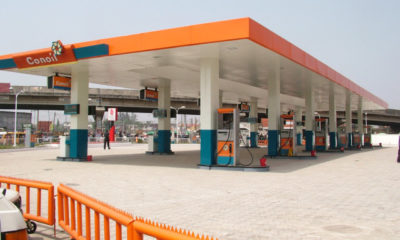- Nigeria’s Reliance on Imported Fuel Rises
Oil production from fields in Nigeria in 2018 were 70,166,496 (70 million) barrels more than what were produced in 2017, a report by the Nigerian National Petroleum Corporation (NNPC) has disclosed.
The document titled: “NNPC Monthly Financial and Operations Report,” for the month of January 2019, contained information on the performance of the country’s oil sector for the entire year 2018.
It also showed that while more crude oil was produced, the country equally increased its reliance on imported petrol by extending its annual consumption level between 2017 and 2018 by 6,669,744,749.27 litres (over 6 billion litres).
The report showed that in 2017, Nigeria’s oil production stood at 690,011,529 barrels with an average daily production of 1,890,443 barrels. The figures for 2018 was however reported by the corporation to be 760,178,025 barrels and 1,784,455 barrels as average daily production data.
This, thus indicated a difference in year-to-year production volume of 70,166,496 barrels.
Notwithstanding the positive production strides which the NNPC related with reforms it had emplaced in its businesses in the industry, the report showed that the country could have produced more oil if it did not record some significant setbacks in its oil production.
For instance, it explained that on the Forcados oil terminal, approximately 35,000 barrels a day (bd) of production into it was cut off because the Brass Creek/Trans Ramos Pipeline (TRP) has been shut down since April 24, 2018 due to leaks in a creek crossing in the Odimodi area. The line, it noted has remained shut to date and repairs still ongoing.
Furthermore, it stated that there was a shut-in on Agbami terminal for the repair of faulty flare and cleaning low pressure separator over a period of 24 days in December with 40,000bd of oil not produced, just as 216,000bd of oil were cut back from the Akpo terminal due to power failure over a period of three days.
At Usan terminal, the report noted: “There was plant shut-down for maintenance activity from 23/11/18- 08/12/18 (7 days in December) with production loss of 90,000bpd. Brass terminal: Addax shut-in production for 9 days as the platform stopped delivery into NAOC’s facility due to leakages. The attendant loss was 10,000bpd.”
Again, on the Oyo terminal, the NNPC stated, “there was shut down since 16/03/2018 – date due to technical issues with the only producing well. Shut-in was 5kbd for the 31 days in December 2018.”
It added that on the Qua Iboe terminal, “there was shut down between 1/12/2018 – 7/12/2018 in Asabo and Ekpe field for Distributed Control System/Electronic Safety Shutdown System (ESSDS) upgrade. Total production cut was 231,000 barrels.”
The Escravos terminal it indicated lost 47,000 barrels of oil for 21 days due to maintenance activity on 26” delivery line from Meren/Parabe fields to Escravos, while 20,000 barrels of oil was lost at the Ima terminal over a period of 20 days that there was a controlled process shutdown.
The report stated that for the period under consideration, Nigeria’s reliance on imported petrol increased by over six billion litres, to end at 21,100,118,126.30 over 14,430,373,377.03 that it was in 2017. The petrol volumes were imported through a crude-for-product swap arrangement, while supplies from the local refineries dropped from 1,586,283,202 litres that was recorded in 2017 to 729,214,778 litres in 2018.

 Billionaire Watch3 weeks ago
Billionaire Watch3 weeks ago
 Startups4 weeks ago
Startups4 weeks ago
 News4 weeks ago
News4 weeks ago
 News4 weeks ago
News4 weeks ago
 Bitcoin4 weeks ago
Bitcoin4 weeks ago
 Naira4 weeks ago
Naira4 weeks ago
 Forex3 weeks ago
Forex3 weeks ago
 Treasury Bills4 weeks ago
Treasury Bills4 weeks ago





















